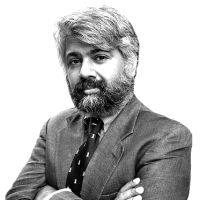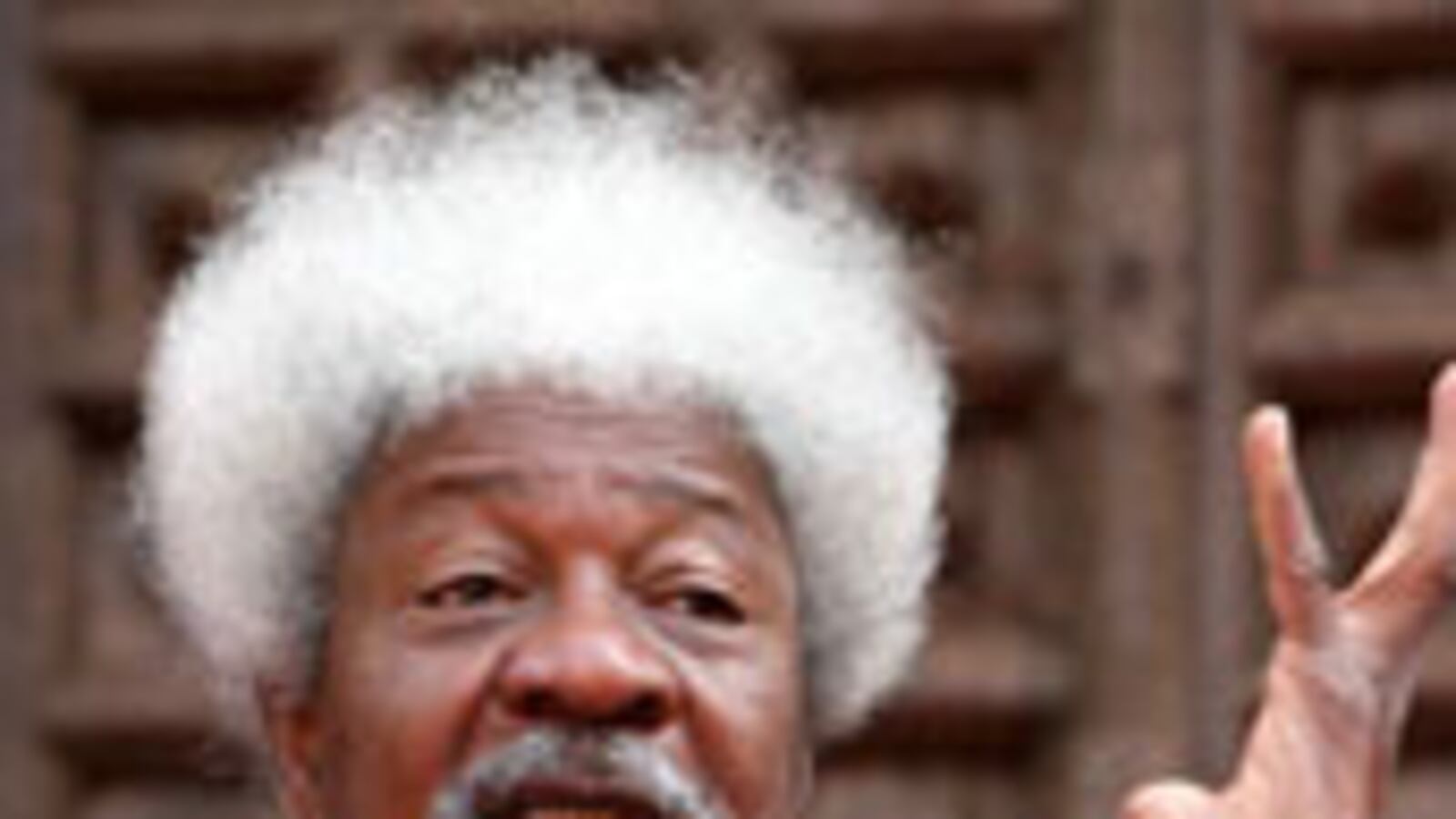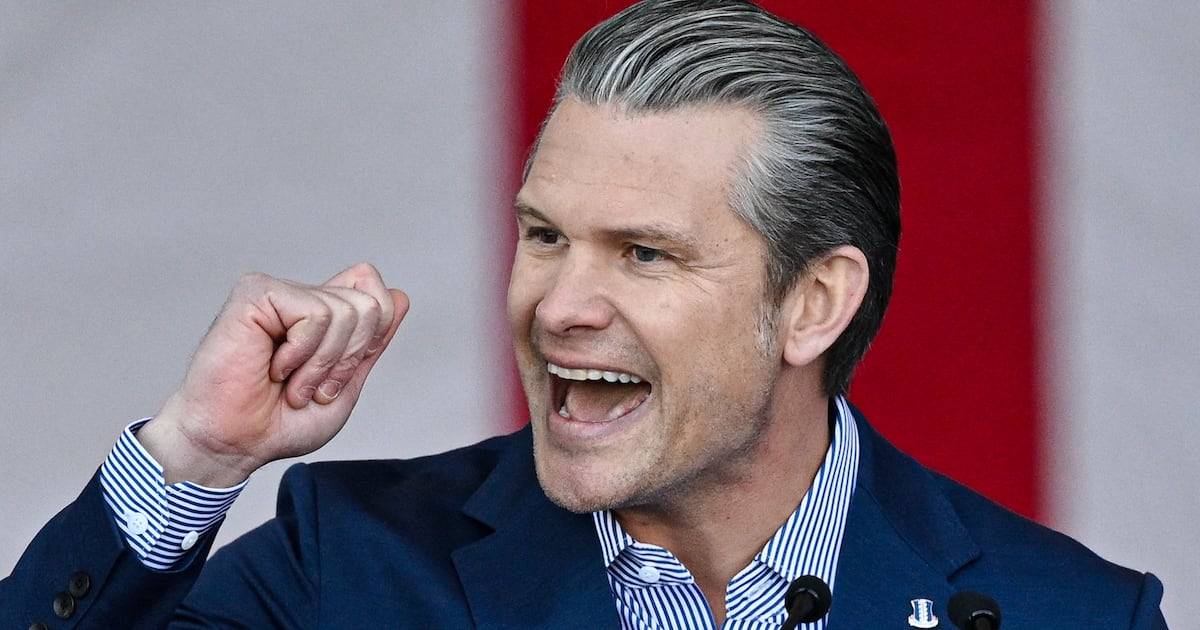
Seated under the portrait of a local maharajah, Wole Soyinka—as regal of face and mien as the potentate in the painting—leaned toward me and uttered words so harsh that I sat bolt upright: "England is a cesspit."
We were in India at the Jaipur Literature Festival, where he, a Nobel laureate for literature and vigorous activist for democracy in his native land, was the guest of honor. I'd seized the opportunity to talk to Mr. Soyinka, the world's most famous Nigerian, about the only other person who might tussle with him for that title: Omar Farouk Abdulmutallab, the young man who boarded a flight in Amsterdam on Christmas Day with a bomb in his underpants.
“We should assemble all those who are pure and cannot abide other faiths, put them all in rockets, and fire them into space."
What did the 76-year-old Mr. Soyinka—who divides his time between the U.S. and Nigeria—make of his country's placement on a watch-list of states deemed to be incubators of Islamist terrorism? "That was an irrational, knee-jerk reaction by the Americans. The man did not get radicalized in Nigeria. It happened in England, where he went to university.
"England is a cesspit. England is the breeding ground of fundamentalist Muslims. Its social logic is to allow all religions to preach openly. But this is illogic, because none of the other religions preach apocalyptic violence. And yet England allows it. Remember, that country was the breeding ground for communism, too. Karl Marx did all his work in libraries there."
Why is Britain the way it is? "This is part of the character of Great Britain," Mr. Soyinka declares. "Colonialism bred an innate arrogance, but when you undertake that sort of imperial adventure, that arrogance gives way to a feeling of accommodativeness. You take pride in your openness." And so it is, he says, that Britain lets everyone preach whatever they want: It confirms a self-image of greatness.
Mr. Soyinka's forthrightness is enhanced by a rich, baritone voice, one with which he'd captivated a largely Indian audience the day before in a discussion of his Beckett-like play, The Road. He had dwelt at length on the character of Ogun, the Yoruba god of the road, protector of travelers, and the deity came up again in our discussion of the undie-bomber, along with the possibility that Ogun had come to the rescue of the passengers on that flight from Amsterdam to Detroit.
"The Muslim Abdulmutallab believed in his own, alien deity, and yet, another deity—Ogun—protected his fellow travelers. In this case, the indigenous deity that [Abdulmutallab] carried inside him—Ogun, the god of wayfarers—thwarted his plan. The young man's suppressed deity came out…" Here, he chuckled wisely and added: "It's a poetic conceit, but I love it."
Our conversation turned to Nigeria, where ferocious killings had just occurred in the central city of Jos, with Muslims slaughtering Christians, and vice-versa. Mr. Soyinka, here, began to brood: "A virus has attacked the world of sense and sensibility, and it has spread to Nigeria, where it has taken on a sanguinary dimension. Roaming hordes of killers are entering homes and dragging out people of other faiths and hacking them to death. In my youth, you heard, side-by-side, the church bells ringing and the beautiful, sonorous call to prayer of the muezzin. But now, it's a disease. One doesn't really know how to handle it."
The day before, in his lecture on The Road, Mr. Soyinka earned a burst of applause with his own, ingenious solution: "I think this is where our rocket engineers and astronauts can come to our rescue. We should assemble all those who are pure and cannot abide other faiths, put them all in rockets, and fire them into space." In our own conversation, he offered—almost apologetically—a more prosaic solution: "Education. And rigorous punishment for those who feel, not 'I'm right, you're wrong,' but 'I'm right, you're dead.'"
In Mr. Soyinka's view, the origins of the current phase of the world's religious strife—including all of the bloodshed in Nigeria—lie with Ayatollah Khomeini and his fatwa against Salman Rushdie, in 1989. "It all began when he assumed the power of life and death over the life of a writer. This was a watershed between doctrinaire aggression and physical aggression. There was an escalation. The assumption of power over life and death then passed to every single inconsequential Muslim in the world—as if someone had given them a new stature.
"Al Qaeda is the descendent of this phenomenon. The proselytization of Islam became vigorous after this. People went to Saudi Arabia. Madrassas were established everywhere."
Will radical Islam take root in the United States, as it has elsewhere in the West? Mr. Soyinka was confident that it would not. "I doubt you can have the kind of indoctrination schools in America as you do in the U.K. Besides, there's a large body of American Muslims in the U.S.—the Nation of Islam—which has created a kind of mainstream Muslim institution. The Muslims there are open Muslims, whereas in Europe they tend to go into ghetto schools.
"The Nation of Islam provides an antidote in the United States to fundamentalist Islam—which is why individuals from America have to go abroad to find radical teachings."
Our conversation ended on a subject on which the stately Mr. Soyinka became almost animated: the bizarre saga of Umaru Yar'Adua, Nigeria's president, who has been in a Saudi hospital, apparently comatose, for nearly two months. Nigeria's government, appalling at the best of times, has been paralyzed by his absence and by the refusal of his inner circle to allow the reins of power to pass from the Muslim president to the Christian vice president.
"The president is sick," Mr. Soyinka said with a wave of his hand, "and Nigeria is now sick. The president is getting treatment for his sickness, and I wish him a speedy recovery. But what about Nigeria? I say that Nigeria also needs treatment. Nigerians have reached a breaking point, and their capacity to tolerate this theater, to put up with this gaping hole in the government, has reached its limit. I would say the situation is explosive. We Nigerians must reclaim our sovereignty, our civic entitlements.
"If we had had a government, we would have been able to resist the American decision to put Nigeria on the terrorist list, along with Afghanistan and other places. If we had a government—a head of state—he would have been able to talk to Obama, tell him that this is unjustified, that the bombing attempt was an aberration. But which Nigerian head of state could Obama talk to? There is no one in charge of the giant of Africa!"
(Update: This article originally incorrectly reported that the fatwa against Rushdie was in 1981.)
Plus: Check out Book Beast, for more news on hot titles and authors and excerpts from the latest books.
Tunku Varadarajan is a national affairs correspondent and writer at large for The Daily Beast. He is also a research fellow at Stanford’s Hoover Institution and a professor at NYU’s Stern Business School. (Follow him on Twitter here.)






